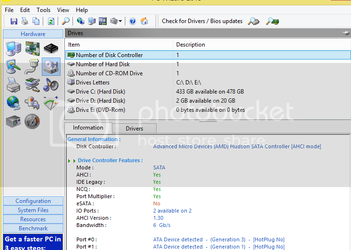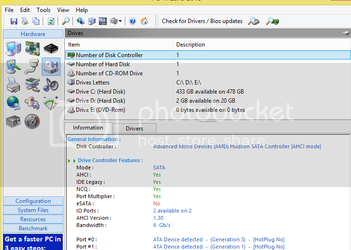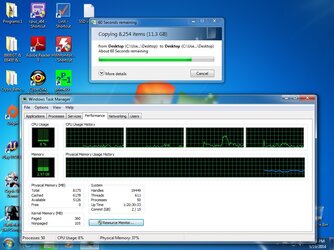Just something to add when it comes to some specs on the hardware level (not just watching at the benching number crunching):
The EVO got a 19 nm TLC toggle NAND (manufactured by Samsung) with a estimated rated endurance of about 2500 cycles. TLC means that each cell got three levels of writing and so it will have 3 times the writing stress compared to SLC and 1/3 more stress than a MLC. That means in theory endurance is decreased and a rated 2500 cycles isnt that high but at least they seem to be honest. In general it can be said that the supreme speed of the EVO is gotten by using some supreme "controller and processing" technologys, not by using superior NANDs. Samsung is basically trying to save up on NAND but instead trying to implement supreme internal processing technologys into the controller in order to improve speed.
The spec "toggle" and "synchronous" is about the same when it comes to performance, both is good deal. The only truly worse thing is when the NAND is asynchronous, so stay away from asynchronous. Asynchronous, kinda same such as "compression based controllers" are able to generate rather unstable performance and/or bad response time.
The Crucial M500 NAND is a 20 nm synchronous MLC, so that means the overwrite endurance in theory is improved. The rated cycle is 3000, thats a clear margin above TLC NAND. The manufacturer is Micron (Micron is in a partnership with Intel, so Intel is always using Micron). The NAND production facilitys are stored in the US and Singapore, so it surely is a high quality NAND and its more costy than Samsungs TLC NAND. Micron had in mind not to so sacrifice endurance to much just in order to lower price.
The weakness is the controller, its simply not at the same performance such as Samsungs approach (with a internal double core processor included), but with lot of utility.
The final message simply is, the M500 is more of a enterprise drive, but a raw gamer and performance user may have more use for a EVO.
Anyway: Make your choice well because
there is a choice... there isnt such a drive (EVO or whatever) able to terminate any other drive because of its "supreme tech", almost every single drive got weak and strong spots.

Unfortunately nowadays the majority is just checking a drives speed by watching at countless benching numbers sites without truly knowing the technology behind and all the other specs and factors. I find it important to know that there is more than just raw speed numbers... a drive kinda like a car is having many functionalitys and unique specs able to be in advantage or disadvantage related on the tasks used (as a extreme example: A formula 1 race car would perform very worse as a family car on the usual streets...

).



